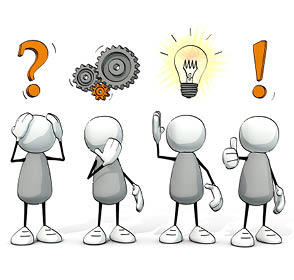
What did the early Easter mean to you? Time after the break to complete those last couple of topics or an opportunity to start revision sessions early?
I am always on the lookout for new ideas to break up the monotony of completing past examination papers. It comes as quite a relief, in a strange kind of way, when we find a common problem or misconception that we can address by bringing the class together for a revision activity, and giving the exam papers a rest. I try to spend some time each week on an activity that is a little different. The question is what can be done? Here are a few ideas and suggestions…
Addressing common misconceptions
One idea I use with students preparing for the foundation examination is to address common misconceptions. I get my ideas from the CIMT collection called misconceptions. Students make simple posters explaining what they see as the common mistakes, explain why a solution is incorrect and why their solution is correct. Work on fractions and negative numbers is always beneficial. We finish the session with some appropriate questions from past papers and by looking at the mark scheme focusing on what students may do to not gain full marks. Although aimed at teachers, I also find these teacher self-study units useful. The ideas are useful for teasing out where students may fall down, I particularly like the algebra unit about generalising.
Adding a question, puzzle or challenge
Another tactic for breaking up revision lessons is to add a simple starter question, a puzzle or a challenge … something that makes the students think but is not too involved so as to use up too much lesson time. Ideally the question requires some understanding that had caused a problem in a previous lesson. For inspiration I look to the junior sections of the UKMT maths challenges. Maths box is always a good source of ideas, such as the ‘Warm ups’ or the ‘Settlers’ activities. I use the sine and cosine ‘settler’ if we need a quick focus on trigonometry. The graded assessments are also a good focus activity but will have to be adapted for next year’s new GCSE examination.
Intervention on a specific topic
Finally, the Churchill maths collection contains a number of activities which are useful for small student groups who need intervention on a specific topic. If you do have students who are completing past papers and require more papers then the Churchill maths exam papers is the place to find them.
Do you have other great ways to engage your students when revising? Join in the discussion in the Secondary mathematics community group.
